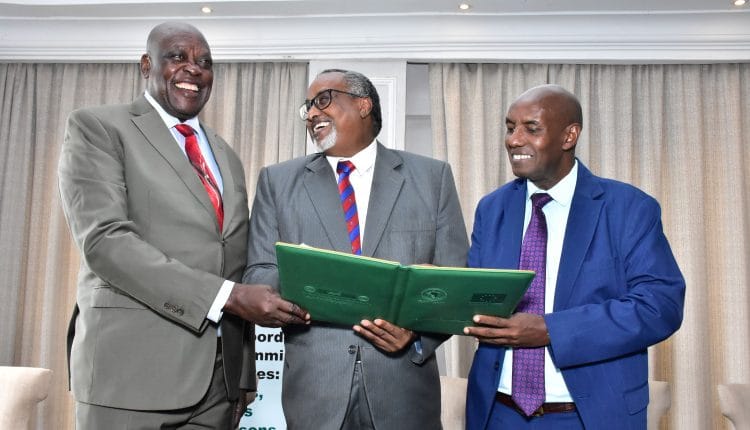IGAD holds cross border resilience programing for Uganda, Kenya and Ethiopia
By Antynet Ford
The IGAD Centre for Pastoral Areas and Livestock Development is set to host a Horn of Africa Regional Knowledge Share Fair, an event dedicated to disseminating results of resilience programming focusing on IGAD’s Karamoja, Moyale and Mandera clusters in the cross-border areas of Uganda, Ethiopia and Kenya.
With support from the USAID funded Cross-Border Community Resilience (CBCR) activity, we have generated master plans highlighting key priorities for each of the three clusters.
These masterplans are the result of co-creation activities which brought together key stakeholders and community members in various corridors within the clusters.
The two-day event organised by the Center will be held from 27th–28th May, 2024 in Nairobi, Kenya. It will feature several panel sessions covering different thematic areas in line with IGAD’s regional mandate.
Bringing together diverse key stakeholders, the Knowledge Share Fair aims to promote sustainable development, peace, and prosperity by strengthening the capacity of stakeholders, facilitating information sharing and collaboration, influencing policy processes, and raising awareness about key cross-border issues.
The participants consist of stakeholders involved in cross-border resilience-building efforts, including representatives from IGAD, Cross-Border Community Resilience (CBCR) team, members of the IGAD Drought Disaster Resilience Sustainability Initiative (IDDRSI) Platform, national and local governments, international NGOs, and local development organizations working in the three clusters, representatives of other IGAD projects, community members, private sector, and members of the IGAD Partners Forum e.g. USAID, Germany, Sweden, Foreign, Commonwealth & Development Office (FCDO), Switzerland, the European Union, Denmark, Finland, Italy, African Development Bank (AFDB), French Development Agency (AFD), World Bank and UN agencies.
There is a growing understanding of the potential of cross-border cooperation both at global and continental levels, including political commitments.
Resilience programming and investment in these areas are based on the understanding that communities are homogenous, share common resources, livelihoods, and cultures and interact freely, irrespective of international boundaries.
This view has gained momentum due to economic opportunities created by cross-border markets and trade and bilateral and multilateral agreements among regional states.
Read also:- Nairobi Hosts IGAD Meeting To Build Support For The Implementation Of The Regional Infrastructure Masterplan
Growing population in borderlands, improved infrastructure due to regional integration and state intervention, trans-Africa Transport facility, access to mobile telephones, revitalised local institutions, decentralisation, and democratisation processes among IGAD Member States are gradually addressing the root causes of marginalisation and extreme poverty.



